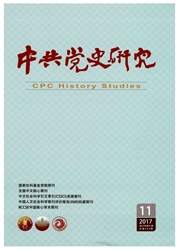

 中文摘要:
中文摘要:
新民主主义革命时期的合作社,有着一套独特的运行逻辑,表现为投机盈利、商人地富主导、股金不等、分红、社员与群众界限模糊等基本特征。1949年,山东省菖南县进行了解放区原有合作社的整理与改造试点,将高收低售、取消盈利、平等股金、废除分红、为社员服务等新的合作政策贯彻于基层合作组织。党和政府通过思想动员、利益导引,实现了普通民众对新合作方针的认同,改变了解放区原有合作社的运行逻辑,重构起以供销合作为主的合作组织体系。合作社成为国家调控乡村的有力工具,国家与合作社的关系由此发生了根本变化,乡村社会经济秩序也因此而改变。一个新的社会形态在合作社的重塑中开始孕育。
 英文摘要:
英文摘要:
The cooperatives in the period of new democratic revolution had their own distinctive logic of operation as expressed in speculating and making profits, control by the elites, unequal shares, dividends on shares and unclear demarcation between cooperative members and the masses. An experiment of rectifying and transforming the original cooperatives in the liberated areas was conducted in Junan County of Shandong Province in 1949, in- troducing some new policies into the grassroots cooperatives such as purchase at higher prices and marketing at lower prices, no profit, equal shares, abolition of dividends and serving the cooperative members. Through ideo- logical mobilization and guidance in respect of their interests, the Party and government successfully got the approval of the broad masses of the people for the new cooperative principles, changed the past logic of operation of the cooperatives in the liberated areas and reestablished the cooperative system with the supply and marketing cooperatives as the mainstay. The cooperatives became an effective tool of the state for the regulations and control in the countryside, giving rise to a fundamental change in the relations between the state and the cooperatives; and the social and economic order in rural areas also changed accordingly. A new social form began to be conceived in the remolding of cooperatives.
 同期刊论文项目
同期刊论文项目
 同项目期刊论文
同项目期刊论文
 期刊信息
期刊信息
